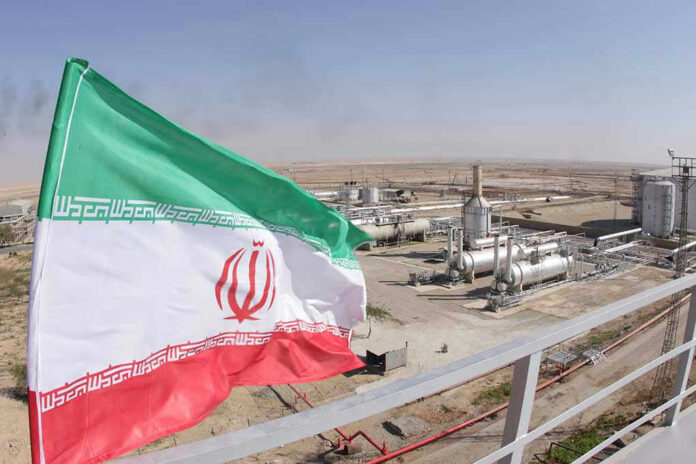A sitting president claims a foreign power tried to assassinate him—and the world shrugs, as if we’re supposed to accept this as the new normal in global politics.
At a Glance
- Iranian President Masoud Pezeshkian accuses Israel of a failed assassination attempt during the June 2025 Iran-Israel war
- Pezeshkian’s allegations come amid fresh nuclear tensions and a stalled US-Iran diplomatic process
- Israel’s bold military campaign targeted Iranian leadership and nuclear facilities, escalating regional instability
- Iran’s regime vows resilience, while the US faces skepticism over its role and credibility as a mediator
Iran’s President Claims Israel Tried to Kill Him—And the World Pretends It’s Business as Usual
Iranian President Masoud Pezeshkian now says Israel tried—and failed—to assassinate him during the 12-day Iran-Israel war in June. This isn’t a movie plot or a leaked spy novel. It’s the world in 2025, where heads of state can accuse each other of attempted murder on live television, and the so-called “international community” barely bats an eye. Pezeshkian’s bombshell claim came during a widely watched interview with Tucker Carlson, where he described being present at a meeting that was annihilated by an Israeli airstrike. It’s the kind of headline that ought to shake every government to its core—except, apparently, those in charge of Western diplomacy. Instead, we get the usual hand-wringing, strategic silence, and a parade of talking heads who wouldn’t recognize a red line if it painted itself across the Capitol steps.
What’s even more astonishing—if you can call anything astonishing anymore—is Pezeshkian’s direct statement that the United States was not behind the attempt. He made a point of exonerating Washington, laying the blame squarely at Israel’s feet. That’s a diplomatic grenade tossed right at the feet of the Biden administration, whose credibility as an “honest broker” in the region is looking about as sturdy as a house of cards in a Texas tornado. It’s hard to tell what’s more absurd: that the leader of Iran can survive a targeted airstrike and go on national TV the next week, or that the rest of the world seems perfectly content to let this slide into the dustbin of news cycles past.
Israel’s Calculated Escalation: Bombs, Assassinations, and Strategic Ambiguity
Let’s not sugarcoat it—Israel’s June offensive was not just another tit-for-tat in the endless Middle Eastern chess game. On June 13, Israeli warplanes unleashed a barrage of airstrikes aimed not just at military outposts or missile launchers, but at the very nerve centers of Iran’s regime. Military commanders, nuclear scientists, and even the president himself were in the crosshairs. Casualties were high, strategic facilities were demolished, and the message was crystal clear: Israel is done playing defense when it comes to a nuclear Iran. For decades, Tel Aviv has made its red lines clear, and when it says “never again,” it means it—diplomatic niceties be damned.
Iran, of course, responded with its own volley of missiles and drones, killing 28 Israelis in what authorities described as a “retaliatory” strike. But the real story is the normalization of political violence at the highest levels. Assassinations used to be the stuff of cloak-and-dagger intrigue, something condemned by every Western leader with a functioning moral compass. Now, it’s just another Tuesday in geopolitics. And while Israel maintains its trademark silence—neither confirming nor denying the hit attempt—the facts on the ground speak louder than any press release.
Diplomacy in Shambles: Who Needs Peace Talks When You Have Airstrikes?
This all happened days before scheduled nuclear negotiations between Tehran and Washington. Try to imagine the White House’s negotiating team sitting down across from Iranian diplomats, pretending this is all just business as usual. Pezeshkian, for his part, says he’s still willing to return to the bargaining table—if, and only if, the US can guarantee Israel keeps its warplanes grounded. What a joke. The notion that Washington could restrain Israel, especially after years of strategic partnership and billions in military aid, is laughable on its face. Meanwhile, Iran’s supreme leader Ayatollah Khamenei has reappeared in public, signaling regime continuity, while the streets of Tel Aviv and Tehran brace for whatever comes next.
The message to American citizens—and anyone else still paying attention—is chilling. When world leaders can be targeted for assassination with little more than a shrug from their adversaries and the global press, what hope is there for actual diplomacy? The United States, once the world’s indispensable nation, now finds itself mistrusted by both allies and enemies, accused of complicity by some and impotence by others. The only certainty is that the next crisis will be even bigger, bloodier, and more unpredictable. And Americans, as always, will foot the bill for the incompetence, arrogance, and endless mission creep of those in charge.











